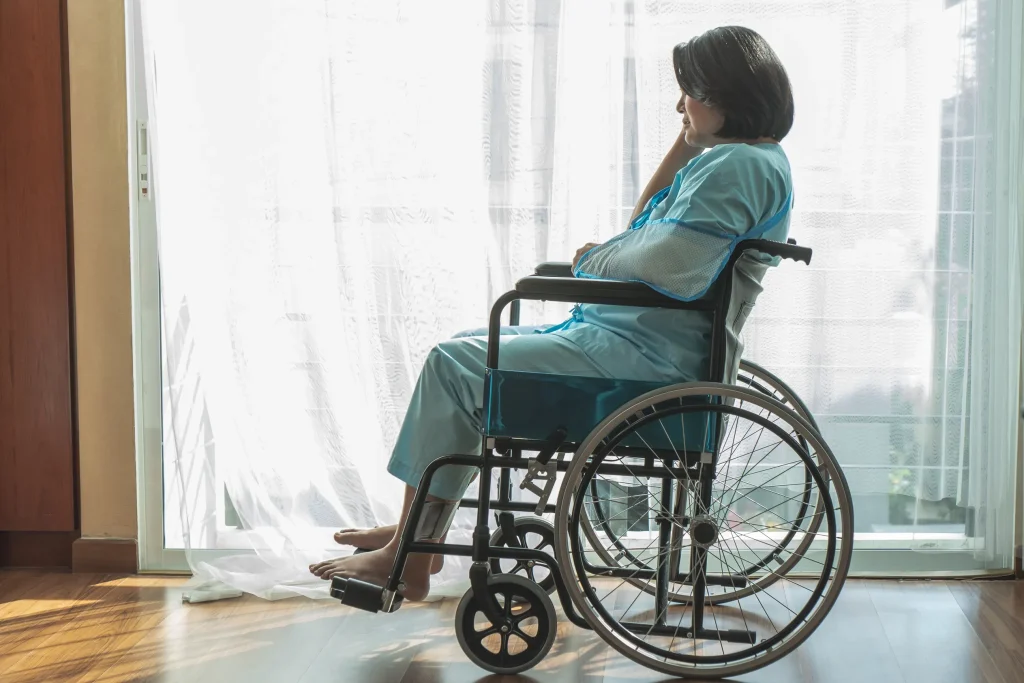
If you’ve suffered injuries because of someone else’s negligence or wrongdoing, you may be able to file a personal injury claim to receive compensation. In your claim, compensatory damages refers to the sum of money you’re seeking, usually from the defendant’s insurance company.
As the injured plaintiff, it’s essential to understand all the damages you have a legal right to. Most new claimants understand economic damages, such as medical costs, but fail to realize just how much they can receive in non-economic damages as well. Let’s take a clear look at the difference between the two types of damages.
Economic Damages
Tangible, financial, easily measurable losses are called economic damages. Medical bills, lost wages, damaged property, and other costs with exact amounts documented are among common economic damages awarded.
Medical Bills
All of your medical expenses resulting from the accident are recuperable. Following a car accident, for example, on top of your hospital bills you might also have bills from your personal physician, physical therapist, pharmacy receipts, and other various medical bills.
Any cost of treatment, no matter how small, should be included here. This also includes your predicted future medical expenses.
Lost Wages

Income or work-related benefits lost because of the accident are also economic damages. You might have been unable to earn a living for a while, losing out on a certain amount of income.
In addition to a lost salary or hourly wage, you might also have lost out on commissions, bonuses, promotions, business opportunities, insurance coverage, pension plan contributions, free meals, and various other work-related perks and benefits.
Reduced Earning Capacity
These lost earnings should also extend into the future. If your capacity to earn or pursue a certain career has been in any way reduced, you should claim compensation for lost business opportunities and income into the foreseeable future.
Property Damage
You may also be able to recover the cost of repairing or replacing damaged property, which is a pretty clear-cut case of economic damages. This might be damage to your motor vehicle commercial or residential property, or to anything else you own.
Proving Future Economic Damages
 Economic damages are often easier to understand, measure, and prove. This is because you’ve already paid for them and have the hospital invoices in your hand. But when predicting how these financial losses will extend into the future, things become a little trickier.
Economic damages are often easier to understand, measure, and prove. This is because you’ve already paid for them and have the hospital invoices in your hand. But when predicting how these financial losses will extend into the future, things become a little trickier.
Proving future economic damages might involve letters from your health care providers and employer and also the use of expert witnesses such as specialist medical professionals and occupational experts. It usually takes an experienced personal injury lawyer to gather all the evidence required to prove future economic damages and loss related to your injury.
Non-Economic Damages
After suffering an injury, you’ve probably also experienced losses for which you don’t have a doctor’s bill or receipt in hand. Non-economic damages are more subjective in nature because they’re non-monetary, but they still cause great harm to the victim in most personal injury cases.
Non-economic damages include pain and suffering, emotional distress, disfigurement, disability or permanent impairment, loss of consortium, loss of enjoyment in life, and more. A key responsibility of your attorney is to place a monetary value on these non-economic damages, prove their worth, and win you fair compensation for them.
Pain and Suffering
Most injuries that require medical treatment come with a degree of physical and emotional pain and suffering. This is perhaps the most common of all non-economic damages in personal injury cases, from car accident claims to medical malpractice cases.
If your injuries have caused you physical pain, you should be compensated for the experience. The mental anguish and emotional distress and trauma that result from an injury are also non-economic damages.
Disability and Permanent Impairment
 When an injury harms part of your body, causing a problem with its proper functioning, you’ve experienced a physical impairment. This impairment is a significant non-economic loss to you, especially if it’s permanent.
When an injury harms part of your body, causing a problem with its proper functioning, you’ve experienced a physical impairment. This impairment is a significant non-economic loss to you, especially if it’s permanent.
Disability refers to the functional limitations in your life that this impairment has caused. The more impactful the impairment has been in your life, the higher the non-economic damages you’re likely to recover.
Disfigurement
If your injury has affected your appearance in any way, you may be able to claim non-economic damages for this negative impact on your day-to-day life. Burns, scars, nerve damage, missing limbs, and other disfigurements cause significant psychological distress.
Loss of Consortium
Any harm caused to your relationships and social support structure is referred to as loss of consortium: another major part of non-economic damages. Victims and people close to the victims of wrongful death often have their relationships devastated by an accident.
Loss of Enjoyment in Life
 A happy life is filled with entertaining and fulfilling activities. Following an accident, if you can no longer do these activities or enjoy them in the same way, then your enjoyment in life has been significantly altered.
A happy life is filled with entertaining and fulfilling activities. Following an accident, if you can no longer do these activities or enjoy them in the same way, then your enjoyment in life has been significantly altered.
This is a more serious breach of your rights than many claimants realize. It should certainly be added to the non-economic damages you’re seeking to recover.
Punitive Damages
Another example of non-economic damages is punitive damages. This is sometimes applicable when the defendant demonstrates willful wrongdoing.
In these cases, it’s often your right to seek punitive non-economic damage under federal law. With individual jurisdiction, differing states impose varying strict guidelines around punitive damages.
Proving the Full Value of Personal Injury Cases
As you can see, the key difference between the two types of damages is that, unlike non-economic damages, economic losses are objective, with a clear monetary value. Placing a value on noneconomic damages, on the other hand, can be highly subjective.
To prove non-economic damages, alongside doctor’s records, witness testimony is often invaluable. Your family members, friends, co-workers, and personal physicians can explain how your life has changed in various ways since the accident.
Call Houston Injury Lawyers, PLLC today at 936-251-5246 for a free consultation. We work aggressively to make sure our clients receive full and fair compensation, including all the economic and non-economic damages you deserve.

